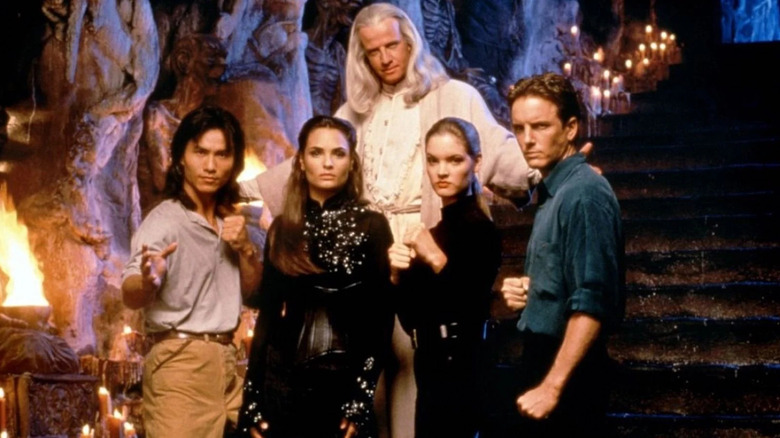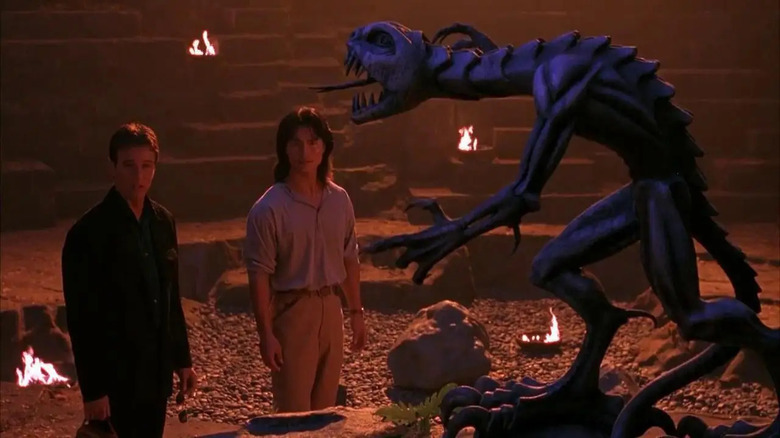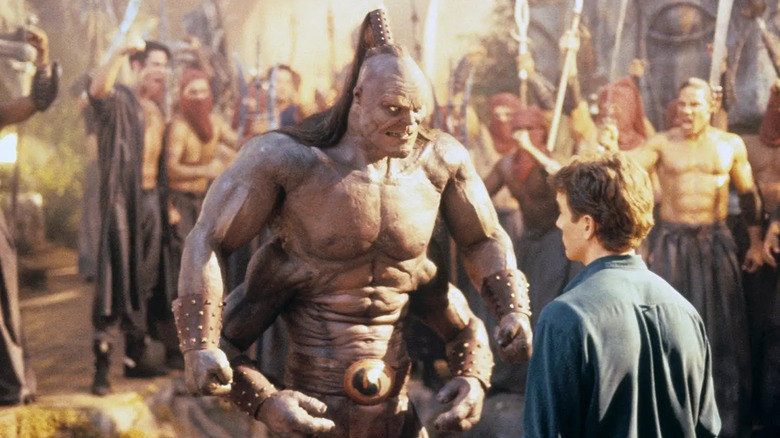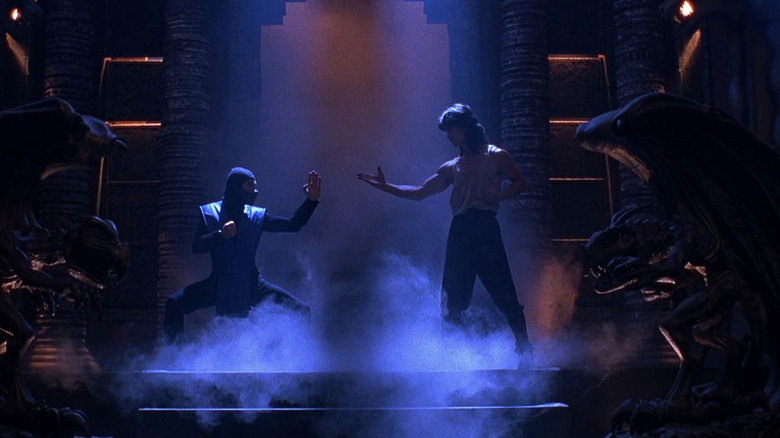Paul W.S. Anderson Bluffed His Way Into Becoming Mortal Kombat's Director
As the old aphorism goes, "fake it till you make it." While the usefulness of the axiom is highly debatable, it does seem to genuinely work for some folks, provided they apply it in the right place at the right time.
For director Paul W.S. (don't call him Thomas) Anderson, the right place and the right time happened to be Hollywood in the mid-'90s. A filmmaker who had just moved to the United States after leaving his home in Northern England, Anderson needed to find a way to jump-start his career in America to be able to make the kind of films he wanted to make rather than what was in vogue in British cinema at the time. This was during a period in British film he liked to say was filled with "sexually repressed British butler"-type stories, with younger audiences and filmmakers left hungry for other topics.
When Anderson heard New Line Cinema had greenlit an adaptation of "Mortal Kombat" based on the immensely popular video game series of the same name, he leapt at the chance to be involved. To make it as the movie's director, however, he found himself having to fake extensive knowledge of various visual effects techniques, including the new fad sweeping the film industry: CGI.
Choose your destiny: Anderson gets a chance for a dream gig
Paul W.S. Anderson had just completed his first feature film, 1994's "Shopping," which featured a decent amount of stunt work but little to no visual effects. Still, it was a movie that was effective and visually stylish enough to capture the attention of the "Mortal Kombat" producers. As associate producer Lauri Apelian recalled in The Hollywood Reporter's oral history of "Mortal Kombat," she was "totally blown away" by "Shopping," impressed Anderson had made it for "something like $100K in the streets of London."
The interest was mutual, as Anderson was a fan of the "Kombat" games before he'd even started his career properly. Prior to making "Shopping," Anderson used to play video games for hours at a London arcade, with "Mortal Kombat" a particular favorite. Thus, Anderson was thrilled when he was approached to direct the movie version, even more excited to take on the project when he saw other potential directors "were being a bit snooty about it."
Test your might: Anderson gives himself a crash course in visual effects
Given the opportunity to pitch his vision for the "Mortal Kombat" movie to the producers, Paul W.S. Anderson's enthusiasm was never in question. As Lauri Apelian recalled, Anderson made pitches for various characters and scenes daily, yet they were ideas the modestly budgeted production couldn't quite make a reality.
Sensing he needed to have more weight to his pitch and having no visual effects experience at the time, Anderson decided to give himself a crash course on the latest techniques in the effects industry. As he recalled to The Hollywood Reporter: "I went to Samuel French's book store and I bought every single book I could find on visual effects, on matte paintings, on CGI."
Thanks to his cram session allowing him to better understand the industry jargon, his subsequent meetings with the producers saw them impressed with his (apparent) knowledge. He continued: "It sounded like I knew more about CG than anyone else in Hollywood, even though I'd never been into a visual effects house."
The sleight of hand worked: Anderson was hired to make "Mortal Kombat," and the movie would indeed end up making extensive use of CGI, using the still-developing tech to blend with other well-established effects techniques. As Anderson admitted 20 years after his successful pitching: "I kind of bluffed my way in, but I think [the producers] could see the enthusiasm."
Flawless victory: 'Mortal Kombat' becomes a hit
Paul W.S. Anderson jumped into the effects challenges of "Mortal Kombat" eagerly, finding various ways to apply the jargon and other elements he'd come across during his studies. Although the director trusted in the movie's potential, he still found himself nervous during the film's opening weekend, worried a potential failure might compromise his career in Hollywood.
Fortunately for Anderson, "Mortal Kombat" was a hit, staying at the top of the domestic box office for several weeks in a row. Thanks to the film's success, Anderson was able to move on to bigger budget genre movies like "Event Horizon" and the "Resident Evil" series, the latter taken on by Anderson partially due to his skipping out on a "Mortal Kombat" sequel, explaining to The Hollywood Reporter that his "not doing 'Mortal Kombat II' is kind of the reason I've ended up doing 'Resident Evil' one, two, three, four, five, six..."
"Mortal Kombat" not only began Anderson's film career in Hollywood proper, it proved video game movie adaptations could be profitable, even decent, popcorn films. As Anderson recalled in 2020, he saw making "Mortal Kombat" as not just a mercenary career move but rather "as a chance to bring something I truly loved to the screen." The filmmaker could've bluffed all he liked when it came to knowing the ins and outs of CGI, but without the enthusiastic love for the material, the ruse probably wouldn't have worked.



